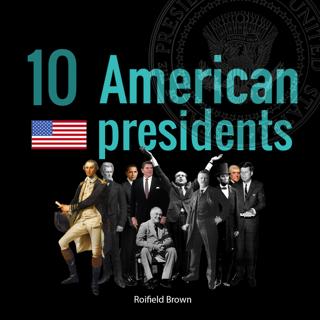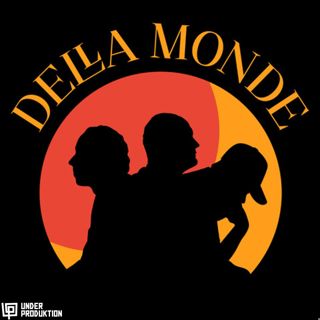
Ep:9 The Monroe Doctrine - Zack Twamley - When Diplomacy Fails
The Monroe Doctrine was a U.S. foreign policy regarding domination of the Americas in 1823. It stated that further efforts by European nations to colonise land or interfere with states in North or South America would be viewed as acts of aggression, requiring U.S. intervention. The Doctrine was issued in 1823 at a time when nearly all Latin American colonies of Spain and Portugal had achieved or were at the point of gaining independence from the Portuguese and Spanish Empires. The United States, working in agreement with Great Britain, wanted to guarantee that no European power would move in. President James Monroe first stated the doctrine during his seventh annual State of the Union Address to Congress. The term "Monroe Doctrine" itself was coined in 1850. By the end of the 19th century, Monroe's declaration was seen as a defining moment in the foreign policy of the United States and one of its longest-standing tenets. It would be invoked by many U.S. statesmen and several U.S. presidents, including Ulysses S. Grant, Theodore Roosevelt, John F. Kennedy, Ronald Reagan and many others. The intent and impact of the Monroe Doctrine persisted with only minor variations for more than a century. Its stated objective was to free the newly independent colonies of Latin America from European intervention and avoid situations which could make the New World a battleground for the Old World powers, so that the United States could exert its own influence undisturbed. The doctrine asserted that the New World and the Old World were to remain distinctly separate spheres of influence, for they were composed of entirely separate and independent nations. Hosted on Acast. See acast.com/privacy for more information.
31 Mars 20161h 18min

Ep8: What is a Caucus - Adam Vonnahme - download this version
A caucus is a meeting of supporters or members of a specific political party or movement. The term originated in the United States, but has spread to Australia, Canada, New Zealand, South Africa and Nepal. As the use of the term has been expanded, the exact definition has come to vary among political cultures.The origin of the word caucus is debated, but it is generally agreed that it first came into use in the British colonies of North America.A February 1763 entry in the diary of John Adams of Braintree, Massachusetts, is one of the earliest appearances of Caucas, already with its modern connotations of a "smoke-filled room" where candidates for public election are pre-selected in private:This day learned that the Caucas Clubb meets at certain Times in the Garret of Tom Daws, the Adjutant of the Boston Regiment. He has a large House, and he has a moveable Partition in his Garrett, which he takes down and the whole Clubb meets in one Room. There they smoke tobacco till you cannot see from one End of the Garrett to the other. There they drink Phlip I suppose, and there they choose a Moderator, who puts Questions to the Vote regularly, and Selectman, Assessors, Collectors, Wardens, Fire Wards, and Representatives are Regularly chosen before they are chosen in the Town... Hosted on Acast. See acast.com/privacy for more information.
17 Mars 201623min

EP:7 - United States presidential election, 1964
The United States presidential election of 1964 was the 45th quadrennial presidential election. It was held on Tuesday, November 3, 1964. Democratic candidate and incumbent President Lyndon B. Johnson had come to office less than a year earlier following the assassination of his predecessor John F. Kennedy. Johnson, who had successfully associated himself with Kennedy's popularity, won 61.1% of the popular vote, the highest won by a candidate since James Monroe's re-election in 1820. It was the most lopsided US presidential election in terms of popular votes; and the sixth-most lopsided presidential election in the history of the United States[2] in terms of electoral votes. No candidate for president since has equaled or surpassed Johnson's percentage of the popular vote, and only Richard Nixon in 1972 has won by a greater popular vote margin.The Republican candidate, Senator Barry Goldwater of Arizona, suffered from a lack of support from his own party and his deeply unpopular conservative political positions. Johnson's campaign advocated a series of anti-poverty programs collectively known as the Great Society, and successfully portrayed Goldwater as being a dangerous extremist. Johnson easily won the Presidency, carrying 44 of the 50 states and the District of Columbia.Goldwater's unsuccessful bid influenced the modern conservative movement and the long-time realignment within the Republican Party, which culminated in the 1980 presidential victory of Ronald Reagan. His campaign received considerable support from former Democratic strongholds in the Deep South and was the first Republican campaign to win Georgia in a presidential election. Conversely, Johnson won Alaska for the Democrats for the first (and only) time, as well as Maine (for the first time since 1912) and Vermont (for the first time since the Democratic Party was founded). Since 1992, Vermont and Maine have rested solidly in the Democratic column for presidential elections, and Georgia has remained in the Republican presidential fold since 1996.No post-1964 Democratic presidential candidate has been able to match or better Johnson's performance in the electoral college (the only Republicans to do so since have been Nixon in 1972 and Ronald Reagan in 1980 and 1984), or Johnson's performance in the Mountain and Midwestern regions of the United States. Hosted on Acast. See acast.com/privacy for more information.
28 Feb 20161h 31min

FDR - Question and Answer show with David Pietrusza
FDR - Question and Answer show with PietruszaQuestions from:Brett Von SchlosserKristaps AndrejsonsDavid P Hazen.Craig BeckBrandt MaloneAdam VonnahmeStephen Guerra Hosted on Acast. See acast.com/privacy for more information.
7 Jan 20161h 29min

Ep:5 - FDR - David Pietrusza
Narrated by David PietruszaFranklin Delano Roosevelt (January 30, 1882 – April 12, 1945), commonly known as FDR, was a American statesman and political leader who served as the President of the United States 1933-1945. A Democrat, he won a record four elections and dominated his party for many years as a central figure in world events during the mid-20th century, leading the United States during a time of worldwide economic depression and total war. Hosted on Acast. See acast.com/privacy for more information.
17 Dec 20152h 39min

EP:4 – Powell – Micheal Goldwasser – How the shows are made
Colin Luther Powell born April 5, 1937 is an American statesman and a retired four-star general in the United States Army. He was the 65th United States Secretary of State, serving under U.S. President George W. Bush from 2001 to 2005, the first African American to serve in that position. During his military career, Powell also served as National Security Advisor (1987–1989), as Commander of the U.S. Army Forces Command (1989) and as Chairman of the Joint Chiefs of Staff (1989–1993), holding the latter position during the Persian Gulf War. He almost ran for the Republican ticket for president in 1996.Born in Harlem as the son of Jamaican immigrants, Powell was the first, and so far the only, Jamaican American to serve on the Joint Chiefs of Staff, and the first of two consecutive black office-holders to serve as U.S. Secretary of State.Also this show features Roifield Brown talking to Michael Goldwasser explaining how the shows are made. Hosted on Acast. See acast.com/privacy for more information.
25 Juli 20151h 5min

Ep:3 – Washington – Mike Duncan – remastered
George Washington (February 22, 1732 [O.S. February 11, 1731] – December 14, 1799) was the first President of the United States (1789–97), the Commander-in-Chief of the Continental Army during the American Revolutionary War, and one of the Founding Fathers of the United States. He presided over the convention that drafted the current United States Constitution and during his lifetime was called the "father of his country". History is narrated by Mike Duncan. Hosted on Acast. See acast.com/privacy for more information.
28 Juni 20152h 22min

Ep:2 – Washington – Mike Duncan Q&A
Mike Duncan answers listener questions about George Washington. Hosted on Acast. See acast.com/privacy for more information.
4 Apr 201516min





















